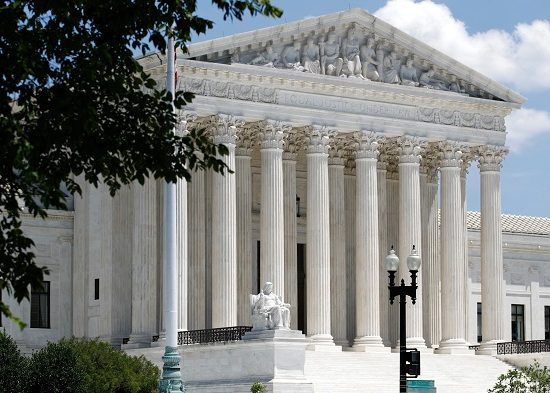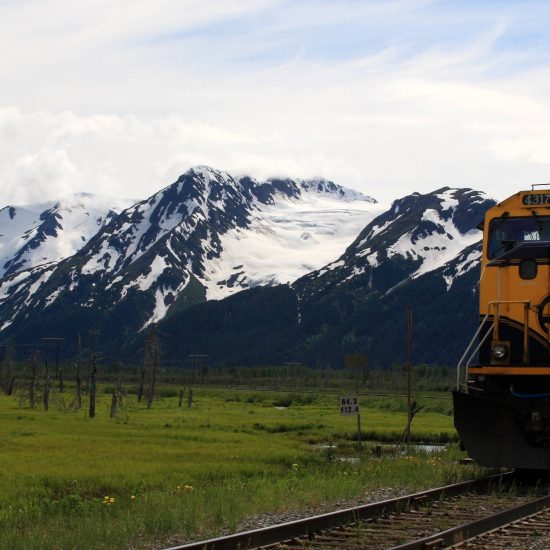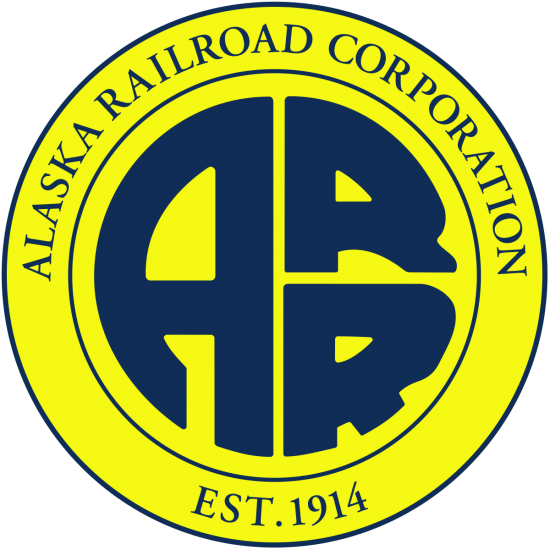
In the last three pieces, we have discussed the Alaska Railroad (AKRR) suing a homeowner’s association in Anchorage, the Flying Crown HOA; took a look at the situation from the AKRR point of view; and finally discussed relevant court cases and federal legislation. Now it is time to put it all together.
Today, with AKRR, we have a state corporation that believes it is not controlled by the State of Alaska. This presents a problem, as a railroad is infrastructure in a state with precious little of it appears to be picking fights with its neighbors over its right of way across their property.
One thing I was not able to figure out is why AKRR feels emboldened to ignore the legislature. In the political world, one thing to do to explain behaviors and choices is to follow the money. Perhaps a look at the 2020 AKRR Annual Report will help.
2019 and 2020 were rough years, with shutdowns based on COVID-19. But there are some numbers of interest:
- Passenger traffic 2016 – 2019 averaged 513,000/year.
- Freight hauled 2016, 2018 and 2019 averaged 3.46 million tons/year. 2017 was anomalously high at 4.77 million tons. In 2020, freight hauled was 2.60 million tons, down 31% from the 4-year average 2016-2019.
- Federal grant revenue is just over $52 million/year, generally used for capital expenditures. This was 40% of total operating revenue for AKRR in 2020, 29% in 2019. In this, federal grants keep AKRR solvent.
- AKRR had an operating loss of just over $18 million in 2020 and a profit of just under $5 million in 2019.
- Total assets are generally $1.06 – 1.10 billion 2016 – 2020.
First up is freight, which topped out at 8.23 million tons in 2005. The 5-year average 2016 – 2020 was 43% of 2005. Worse, 2020 was 32% of that peak. Likewise, the high passenger year of 2007 was just 30,000 above the 2018 most recent maximum ridership. Going to be difficult to justify system expansions like a second track if your freight has fallen precipitously and passenger traffic hasn’t increased much over the last couple decades.
There appears to be a real groupthink within the corporate leadership that they were given fee simple exclusive use easements in their rights of way. I have tracked this back over 40 years. One recent example is RFP 19-61-207807, ARR Right of Way Appraisal posted Jan 7, 2020. Addendum 1, Jan 24, 2020, contains the following language:
“The property rights being appraised in this report are to be based on a fee simple estate”
AKRR has gained a real reputation for ignoring the Alaska Legislature, which it believes it can do with impunity because it does not receive any operating money from the State of Alaska. Any concern is passed off to federal railroad regulators, BLM, or the GAO in Washington DC. They’ll talk to the State when they want something. When the State wants something, AKRR tells them to talk to the feds.
The most recent legislative attempt to deal with the festering right of way issue was HJR 38 in 2018 which ordered AKRR to limit their exclusive use easement claims. They ignored state law and filed a lawsuit in federal court instead. You don’t generate a lot of goodwill or public support as a state corporation going to the feds to solve a state issue.
On the other hand, they are very well connected politically within the state, brilliantly positioning former AKRR employees, Board members and supporters in positions of authority. The most recent example is the Municipality of Anchorage, which just elected Dave Bronson Mayor. The MOA also has right of way issues with AKRR. Before the election, the MOA asks the federal court if they can intervene in Flying Crown as a separate defendant. Who shows up as co-chair of the Bronson Transition Team? Current AKRR Board Chairman Craig Campbell. Coincidence?
In recent years, as leases for access to the right of way have expired, property and business owners have been greeted with rent increases orders of magnitude over what was previously agreed to. One long-time property rent payer in the Ship Creek area who had been there over 40 years and had worked closely with AKRR on improvements to the property over that period (generally fill), was forced to leave when AKRR refused to renew the lease.
This is happening across the entire railbelt, with AKRR playing the heavy. It should be no surprise that their neighbors (homesteaders, business owners and local governments) are highly agitated. This is not going to end well for AKRR, as there are politicians out there who can and will take advantage of the wanton ugliness aimed at their neighbors. An unaccountable state corporation regardless of how important it may or may not be will not remain unaccountable. Eventually the citizens will elect someone who will do something about it.
Speculation is that AKRR is positioning itself to bond for the northern extension to Alberta. Could be, though railroads have ALWAYS tried to convert their easements into fee simple ownership giving them exclusive use rights of way. This is why both Congress and the US Supreme Court got involved over the last century and a half telling them no. Yet they persist.
What I do know is that this sort of ugliness is going to trigger a political response, one that will be destructive to the continued operation and perhaps even the very existence of the AKRR itself. The question “Why does Alaska need a railroad?” is starting to be asked.
Somewhere along the line, we are going to have to have some sort of public conversation about the value AKRR brings to our daily lives. Today, their primary traffic is passengers. They no longer haul refined products. They no longer haul coal. Their freight traffic today is 32% of their peak. Of what value to the citizens of Alaska is a state corporation that believes they can ignore the state government – executive and legislature – with impunity? Perhaps state highways and over the road trucking would be a better solution more responsive to Alaskan citizens.
Perhaps it is time for privatization, a sale. At the very least, it is time to bring the entire structure under regulatory control so that they are forced to play nicely with their neighbors, utilities, and others who cross their tracks. If AKRR thinks it is a utility, treat them like one, which means bringing them under the Regulatory Commission of Alaska (RCA). This might be a great first step regardless of how the current festivities end.
This situation has been building for a long time and will take a long time to fix. But it appears that the political world on both sides of the fence are getting engaged. The longer this goes on, the more disruptive the solution is going to be.
My guess is that AKRR is going to have to be told what to do. They will ignore that direction, leading to an even more blunt, destructive response from the political world. The Roman response to Carthage “Carthago delenda est” comes to mind.
And it is all so unnecessary.
Alex Gimarc lives in Anchorage since retiring from the military in 1997. His interests include science and technology, environment, energy, economics, military affairs, fishing and disabilities policies. His weekly column “Interesting Items” is a summary of news stories with substantive Alaska-themed topics. He was a small business owner and Information Technology professional.








